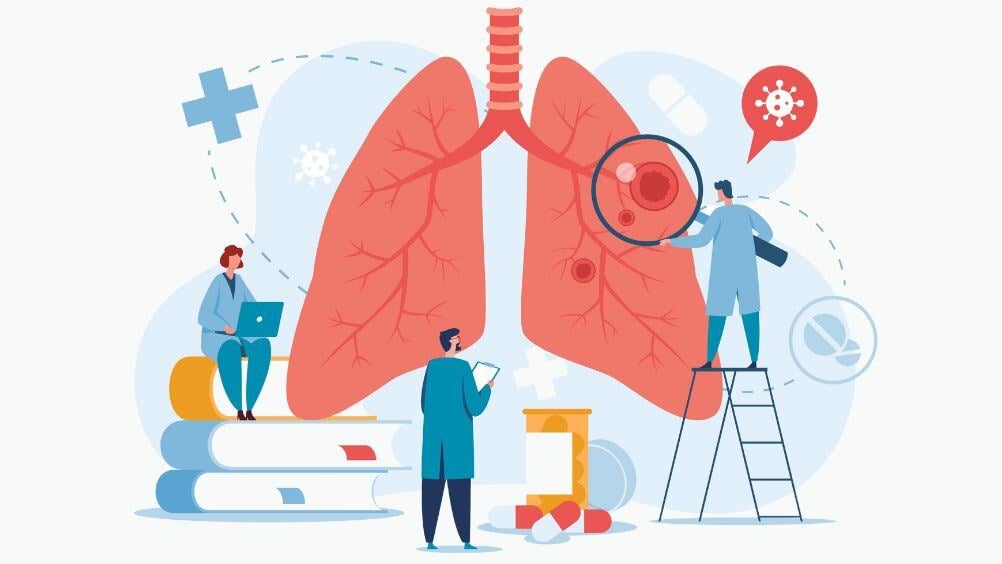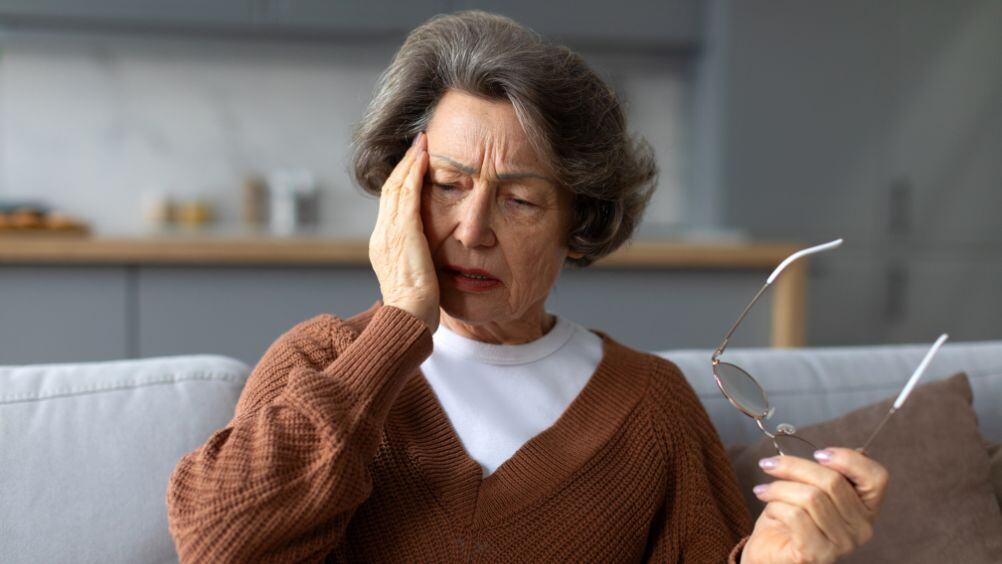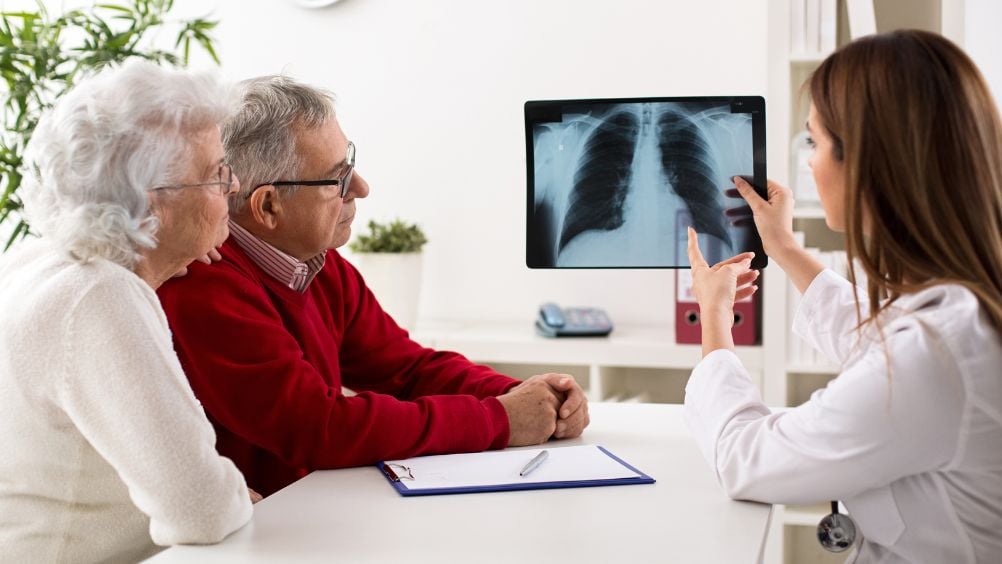Thanks to decades of lung cancer research and a better understanding of the human genome, oncologists are able to provide more advanced lung cancer therapies than ever before. It’s changed the prognosis for many non-small cell lung cancer patients.
Beyond Chemotherapy: The Latest Treatments for Lung Cancer
Until recently, the primary treatment for lung cancer, other than surgery, was chemotherapy. Two newer categories of drug therapies are now available for lung cancer treatment.
Immunotherapy
While the immune system normally identifies foreign bodies, such as a virus, it’s harder with cancer. Cancer cells turn off the body’s ability to check whether a cell is cancerous. Immunotherapy drugs activate your immune system to help it identify and destroy cancer cells.
Targeted Therapy
This category of treatment is available for non-small cell lung cancer, and more uses are under investigation through clinical research. Also called precision medicine, this category of drug targets specific genetic mutations found in the patient’s cancer cells. Various gene mutations will result in the use of different targeted therapies.
Testing to See If Targeted Therapy or Immunotherapy Will Be Effective
Many patients receive more than one type of lung cancer treatment. However, not everyone will receive immunotherapy and/or targeted therapy. That decision will be based on the type of lung cancer and biomarker test results.
Biomarker testing is used to determine whether there are any genetic abnormalities within the cancer cells. Genetic mutations can appear as additions, deletions, or rearrangements of the genetic material in any cell. The cancer cells removed during surgery or a biopsy are used for this testing process.
If biomarker testing shows a change in the DNA of the cancer cells, treatment with targeted therapy or immunotherapy may be available.
Immunotherapies Help the Immune System Target Lung Cancer Cells
Immunotherapy has had more recent developments in lung cancer treatment. This approach uses medication to help the immune system fight cancer. Immunotherapies have continued to improve over the last several years. Discoveries in treatment have led to improved outcomes for patients with different lung cancer types, including small and non-small cell lung cancers.
Checkpoint Inhibitors for Lung Cancer
Cancer cells can disguise themselves as healthy cells to avoid the immune system's defenses. Checkpoint inhibitors help expose these disguised cells, allowing the immune system to target cancer effectively.
PD-1 Protein Inhibitors
Some immunotherapies work by targeting a protein called PD-1. This protein is found on a specific type of immune cell called T cells, and it helps keep the immune system from attacking healthy cells. By blocking PD-1, these treatments allow the immune system to better recognize and attack cancer cells, which can shrink tumors or slow their growth.
PD-L1 Protein Inhibitors
Other immunotherapy drugs target a related protein, PD-L1, found on some tumor and immune cells. Blocking PD-L1 also helps the immune system fight cancer more effectively, which can lead to smaller tumors or slower growth.
These treatments are used for non-small cell lung cancer (NSCLC) in different situations. Before starting, doctors may run tests to check for the PD-L1 protein and specific mutations in the cancer cells. The results help decide when and how to use the treatments. They can be given alone or with chemotherapy, before or after surgery, or as long-term treatment for advanced cancer.
CTLA-4 Protein inhibitor
Another type of immunotherapy works by blocking a protein on immune cells called CTLA-4. These drugs are usually used together with PD-1 inhibitors and may be an option for some advanced lung cancer cases, often given with chemotherapy.
Monoclonal Antibodies for Non-Small Cell Lung Cancer
Monoclonal antibodies are created in a lab to mimic immune system proteins. This allows them to attach to cancer cells and stop the growth of blood vessels. The lack of blood in the cells causes them to die. While research is being conducted on using monoclonal antibodies in all types of lung cancer, this approach is more common for patients with non-small cell lung cancer.
Lung Cancer Immunotherapy Side Effects
Immunotherapy drugs can be used as a standalone treatment or combined with other treatment approaches, like radiation or chemotherapy.
Although immunotherapy has fewer side effects than other treatment methods, patients may still experience some. Different factors can impact which side effects patients will have.
One of the biggest issues with immunotherapy is identifying which approaches will benefit patients most. Your lung cancer doctor will work closely with you to weigh your options, determine which approach is right for you, and explain what to expect while you are receiving treatment.
Targeted Therapies Reach Lung Cancer Cells While Avoiding Healthy Cells
Targeted therapy differs from chemotherapy because it does not harm healthy or normal cells. Because the targeted therapies do not damage as many cells, patients usually have fewer side effects than traditional chemotherapy.
There are several existing FDA-approved targeted therapies available on the market that can target non-small cell lung cancer tumors that have genetic mutations in the following genes:
- EGFR
- ALK
- ROS-1
- NTRK
- MET
- RET
- BRAF V600E
Targeted therapies are most frequently used in Stage IV non-small cell lung cancer or recurrent NSCLC.
If the biomarker testing does not show a mutation in one of these genes, other treatments, including chemotherapy and radiation, are used to treat lung cancer cells.
Related reading: New Technologies in Targeted Therapy for Advanced NSCLC Treatment
Clinical Research to Find New and Effective Ways to Treat Lung Cancer
The lung cancer oncologists at Willamette Valley Cancer Institute stay up-to-date with all lung cancer treatments because we recognize the importance of cancer research. We currently have clinical trials open for lung cancer patients in different stages of the disease. If one is right for you, the oncologist will discuss it with you for your consideration.
Related read: Lung Cancer Research and Its Impact on Treatment Options and Outcomes
If a lung cancer specialist recommends a clinical trial as part of your treatment plan, you can choose to participate. WVCI offers trials at our local cancer centers in the Willamette Valley and along the Oregon coast. We are proud to provide these leading treatments close to home, where it’s most convenient for our patients and their support system of family and friends.
Talk with your WVCI cancer care team to learn about our clinical trials and whether participating in one is right for you.
Find a WVCI Location Near You for Information on Lung Cancer Treatments & Clinical Trials
The lung cancer specialists at Willamette Valley Cancer Institute work with you to create a treatment plan for your specific type of lung cancer. If you or a loved one has received a lung cancer diagnosis, find the WVCI location nearest you to schedule an appointment. We also provide second opinions on a treatment recommendation.



